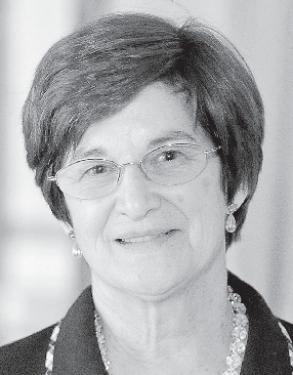Editorial comment: Riverdale's jewel
In the midst of the economic downturn at the beginning of the 1990s, New York City cut its cultural budget to the bone and Riverdale's premiere cultural institution nearly went under. Only an anonymous donor's contribution kept Wave Hill solvent.
That was the circumstance that greeted Kate French when she took up her post as Wave Hill's executive director 17 years ago.
So it would be easy to sum up Ms. French's tenure with numbers. When she handed over the reins of the public estate to her successor Claudia Bonn this week, Wave Hill was no longer dependent on city funds. In a budget grown to $5 million, less than 20 percent comes from the city, and a $20 million endowment built by Ms. French and Riverdalian David Beim while he was chairman of the board, provides a cushion when the economy falters.
But numbers don't begin to tell the story of what Kate French has meant to Riverdale. They don't tell of the confidence she inspired or of her ability to make others feel how important their contributions are. Nor do numbers tell the story of how she has changed the institution she presided over.
Wave Hill has always been beautiful, but it hasn't always been welcoming. Under Ms. French, the estate has reached out to New Yorkers of all descriptions, attracting downtown hipsters and South Bronx teens to savor the estate's delights.
The gardens have always been justly famous. Now, though, Wave Hill is a cutting- edge venue for art; an evolving place to hear music of all sorts; a summer festival of dance and food and song; and one the city's most innovative educational institutions, teaching public school students and their teachers about the connection between us and the planet we inhabit.
That's the Wave Hill Kate French leaves behind - a place that is no longer Riverdale's hidden treasure, but a jewel in the city's crown.
Editor's note: Press co-publisher Bernard L. Stein is a member of Wave Hill's board of directors.






